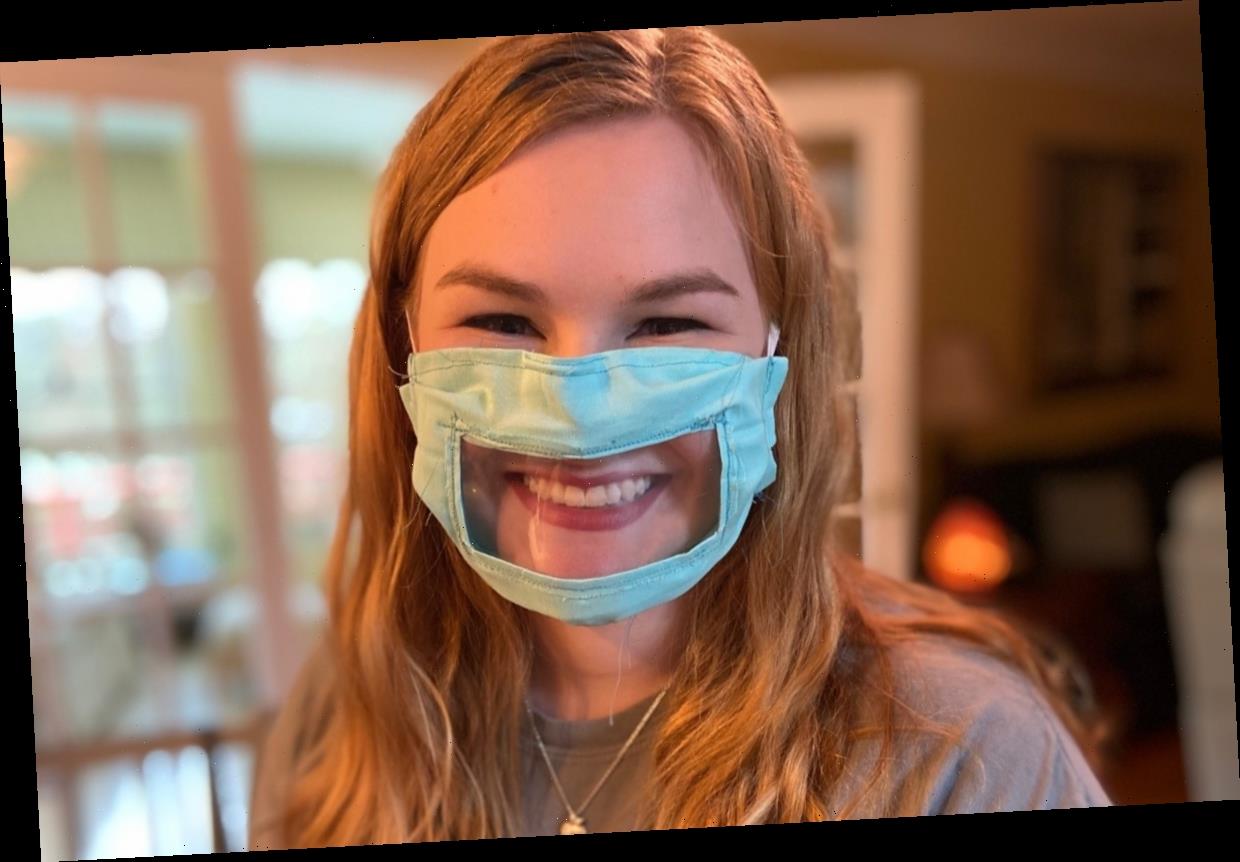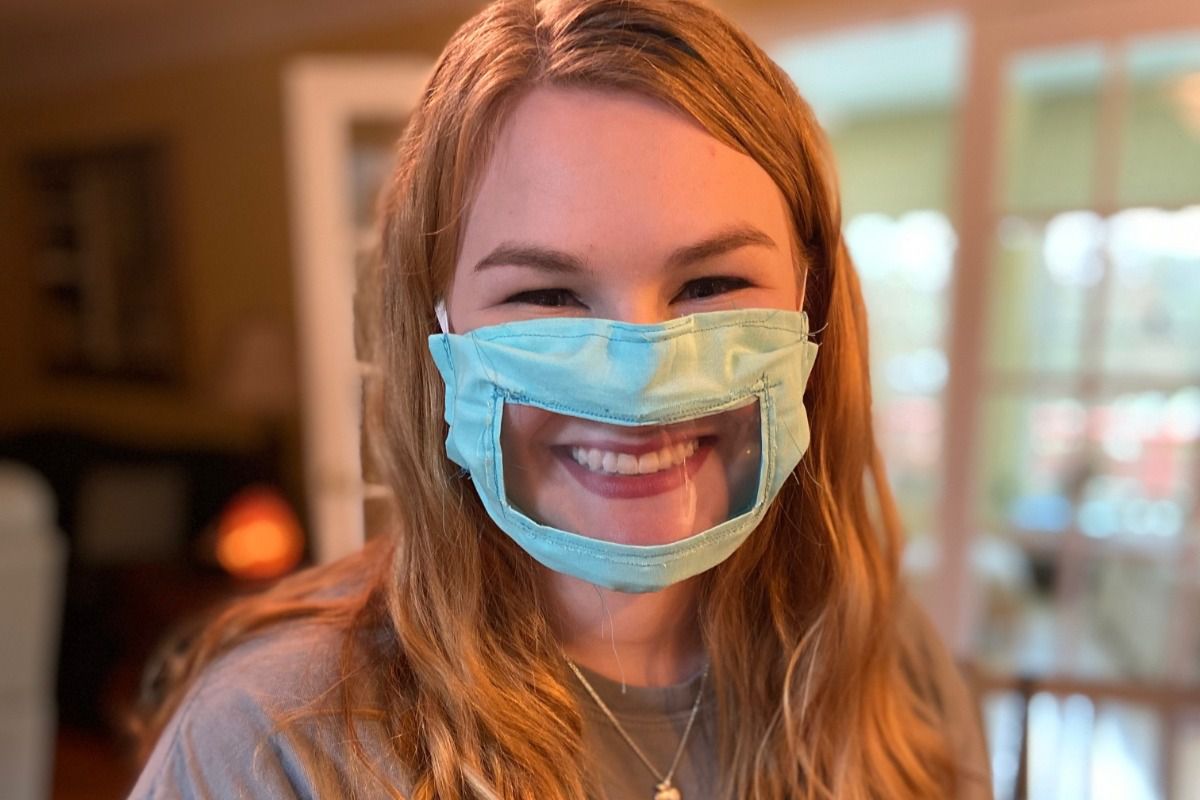A Kentucky college student is getting crafty when it comes to helping the hearing-impaired community through the coronavirus.
Ashley Lawrence, 21, is studying education for the deaf and hard of hearing, and knows the importance of face visibility for those who rely on lip reading or ASL to communicate.
With that in mind, she’s creating reusable fabric masks that feature a clear plastic piece over the wearer’s mouth so that their lips are still visible.
“[These are] for anyone who uses speech reading, lip reading, anybody like that, and people who are profoundly deaf who use ASL as their primary mode of communication,” she told NBC affiliate WLEX. “ASL is very big on facial expressions and it is part of the grammar.”
Lawrence explained on a GoFundMe page that she plans to make and distribute the masks free of charge to anyone who needs them, including those who are not sick now but may be in the future so that they can have it on hand to give to their doctor.
U.S. officials have said that people who are sick or caring for the sick are the only ones who should be wearing medical masks, of which supply is short. However, inspired by how other nations have fought the pandemic, varieties of alternative masks have gained popularity in the U.S. as Americans consider precautions in addition to hand washing and social distancing.
For healthcare workers, the CDC has warned that homemade masks should be used as a “last resort” in the absence of proper N95 masks, adding that “homemade masks are not considered PPE [personal protective equipment], since their capability to protect HCP [healthcare personnel] is unknown. Caution should be exercised when considering this option. Homemade masks should ideally be used in combination with a face shield that covers the entire front (that extends to the chin or below) and sides of the face.”
“I felt like there was a huge population that was being looked over. We’re all panicking right now and so a lot of people are just not being thought of,” she told WLEX. “So, I felt like it was very important that, even at a time like this, people need to have that communication.”
The Eastern Kentucky University student and her mother have been working together on the project, making their first two or three sets at home out of bed sheets and plastic fabric.
They’re also modifying the masks further to go around the head or neck for people with cochlear implants and hearing aids who are unable to wrap them around their ears.
Lawrence told WLEX that she’s so far had dozens of orders across six different states in just a few days.
She arranged the GoFundMe to help offset the cost of materials and shipping, though after raising $3,387, she announced that she’d met her goal and would no longer be accepting donations.
All extra money raised will be donated to the nonprofit Hands & Voices, she said, and anyone who wants to order one can do so at [email protected].
Meanwhile, Lawrence said she’s also working on a YouTube tutorial so that anyone who wants to can make masks of their own.
As of Thursday afternoon, Kentucky has 682 confirmed cases and 20 deaths attributed to coronavirus, while the United States has 234,483 cases and 5,708 deaths, according to The New York Times.
Meanwhile, GoFundMe.org, the company’s non-profit and advocacy arm, has launched a fundraiser that offers support for organizations and individuals affected by coronavirus, the platform said in a statement provided to PEOPLE.
“By donating to the GoFundMe.org general relief fund, the donation supports many individuals who have started fundraisers on GoFundMe related to this pandemic, and organizations dedicated to serving the people,” the company said. “Donations to the general relief fundraiser of GoFundMe.org, a United States charity, are tax-deductible to the extent permitted by law, and will broadly support communities impacted by coronavirus.”
As information about the coronavirus pandemic rapidly changes, PEOPLE is committed to providing the most recent data in our coverage. Some of the information in this story may have changed after publication. For the latest on COVID-19, readers are encouraged to use online resources from CDC, WHO, and local public health departments. To help provide doctors and nurses on the front lines with life-saving medical resources, donate to Direct Relief here.
Source: Read Full Article

